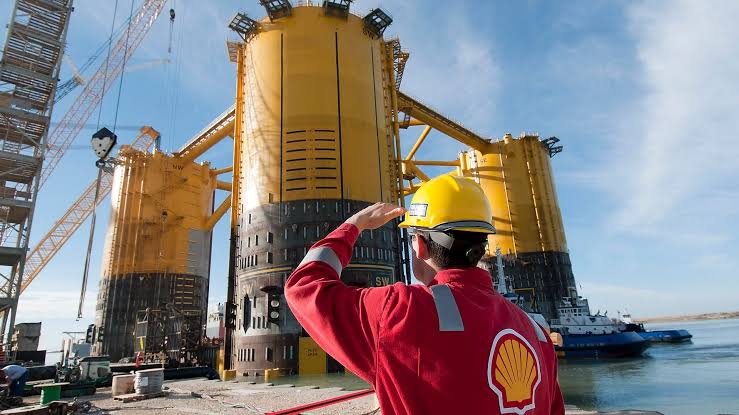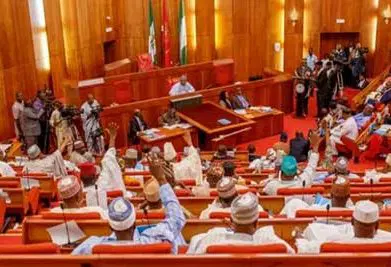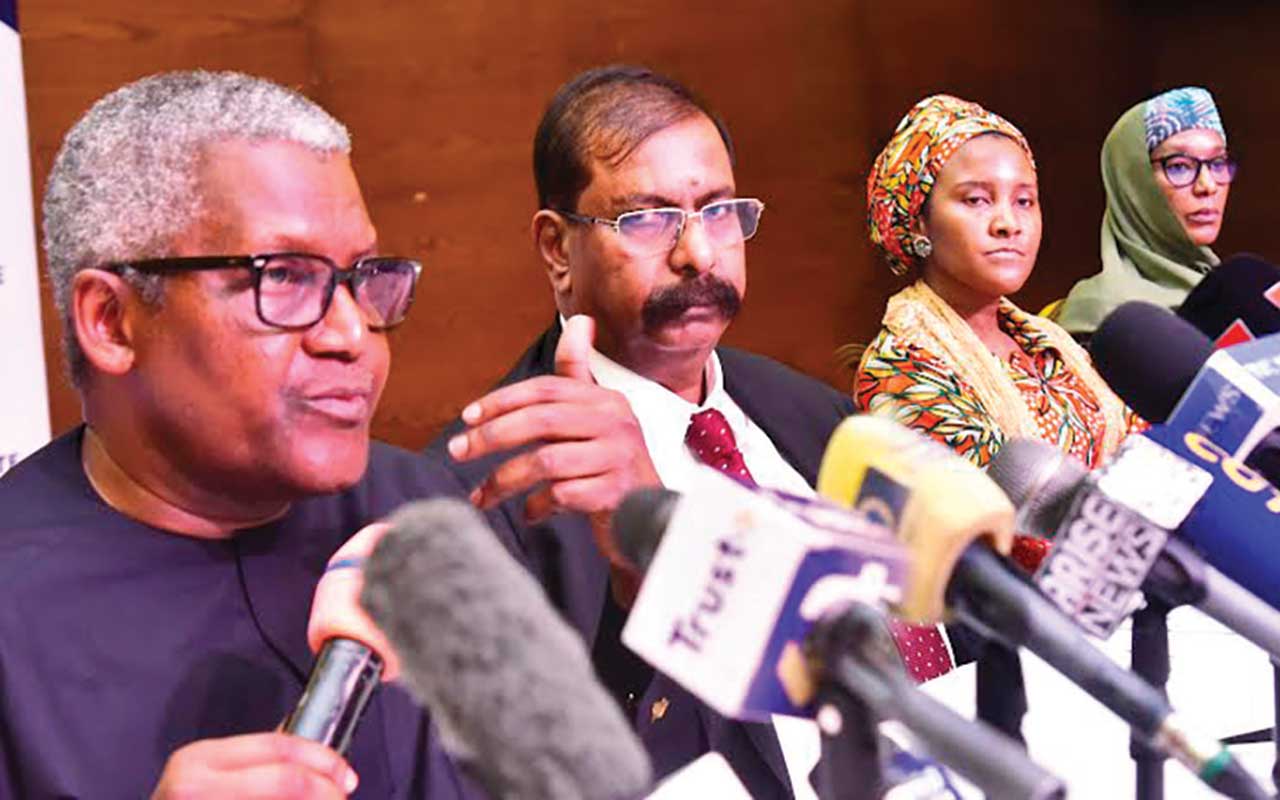Massive Boost: Shell Unleashes $2bn Gas Investment, Igniting Nigeria's Energy Future

The Nigerian energy sector has witnessed a significant boost in upstream investment commitments, reaching over $8 billion since President Bola Tinubu assumed office. This substantial growth is largely validated by Shell Nigeria Exploration and Production Company Limited’s (SNEPCo) recent Final Investment Decision (FID) on the HI offshore gas project. In partnership with Sunlink Energies and Resources Limited, SNEPCo announced a $2 billion injection into the shallow offshore HI field in Oil Mining Lease (OML) 144, marking a crucial milestone for the nation's gas ambitions. President Tinubu welcomed this fresh investment, hailing it as a clear validation of his administration's reform agenda and a signal of renewed global investor confidence in Nigeria's open-for-business environment.
The HI gas field, originally discovered four decades ago in 1985, is situated at a depth of 100 meters, approximately 50 kilometers off Nigeria's shore. This project operates as a joint venture, with Sunlink holding a 60 percent interest and SNEPCo 40 percent. The current estimated recoverable resource volumes for the HI project are approximately 285 million barrels of oil equivalent (mmboe). Upon completion, which is anticipated before the end of this decade, the project is projected to supply 350 million standard cubic feet (mscf) of gas per day at peak production, equivalent to about 60,000 barrels of oil equivalent per day.
This substantial gas supply is primarily destined for Nigeria Liquefied Natural Gas (NLNG), where Shell holds a 26.5 percent interest, boosting feedstock for its Train 7 project. The Ubeta and HI gas projects combined are capable of supplying up to 15 percent of NLNG’s total feedgas requirements, covering Trains 1 to 7. The NLNG Train 7 expansion aims to increase Nigeria’s LNG production capacity by 8 million metric tonnes annually, representing a 35 percent rise from current output. This expansion is critical for strengthening Nigeria’s position in the global gas market, enhancing domestic gas availability, creating jobs, driving economic growth, and stimulating small and medium enterprises (SMEs) in host communities. Special Adviser to the President on Energy, Olu Arowolo Verheijen, emphasized that these FIDs would secure the gas supply necessary to make NLNG Train 7 transformative, enhancing the reliability of Nigeria's LNG exports and expanding LPG supply for domestic use, thereby reducing imports, boosting foreign exchange earnings, and advancing clean cooking access for millions of Nigerian households.
The success in attracting such significant investments, including the HI project, the Ubeta Non-Associated Gas project, and the Bonga North deepwater project (representing Nigeria's third major oil and gas FID in the last 18 months), is attributed to President Tinubu's comprehensive reform agenda. Since 2024, the administration has introduced targeted directives, led by the office of the special adviser to the president on energy. These reforms, now embedded in legislation, have introduced unprecedented fiscal incentives, regulatory clarity, simplified operating processes, reduced contracting costs, and shortened approval cycle times. Specifically, the development of the HI gas field is enabled by Presidential Directive 40, which established a competitive fiscal framework for Non-Associated Gas in onshore and shallow offshore fields, thereby restoring investor confidence and repositioning Nigeria as a competitive investment destination. Minister of State for Petroleum, Senator Heineken Lokpobiri, also highlighted these investments as a direct outcome of Tinubu's bold and transformative policies.
Peter Costello, Shell’s Upstream President, affirmed that this FID demonstrates Shell's continued commitment to Nigeria’s energy sector, with a strategic focus on deepwater and integrated gas. This project supports Shell’s global plans to grow its LNG volumes by an average of 4 percent to 5 percent annually until 2030 and aligns with its Capital Market Day 2025 commitment to deliver upstream and integrated gas projects with over 1 million barrels of oil equivalent per day total peak production between 2025 and 2030. The HI project’s infrastructure will include a wellhead platform with four wells, a pipeline to transport multiphase gas to an onshore facility at Bonny, and a gas processing plant at Bonny. From there, the processed gas will be delivered to NLNG, and condensate will go to the Bonny Oil and Gas Export Terminal. Shell views LNG as a key component in the energy transition, offering lower greenhouse gas emissions compared to coal for electricity generation and less emissions than petrol or diesel for transport fuel.
Beyond these major investment decisions, Nigeria's energy sector is also actively addressing environmental sustainability. The Nigerian Upstream Petroleum Regulatory Commission (NUPRC), in collaboration with the World Bank Group and other multilateral institutions, is deepening the capacity of industry operators in methane abatement and emissions management. This initiative, part of Nigeria’s upstream decarbonisation agenda, aims to align operations with international best practices for effective emissions monitoring and carbon monetisation, particularly targeting methane emissions from flaring, venting, and fugitive sources. Concurrently, the Nigerian National Petroleum Company Limited (NNPC) emphasized the importance of strategic partnerships in unlocking value, achieving sustainability, and advancing commercialization within the nation’s downstream petroleum sector, reaffirming its commitment to ensuring consistent fuel availability, competitive pricing, and quality assurance nationwide.
You may also like...
Rooney Blasts 'Crisis Mode' Liverpool: Champions Lacking Leadership and Salah's Form a Major Concern

Defending Premier League champions Liverpool are in a worrying slump, having lost four consecutive matches. Former Engla...
Real Madrid Stuns Barcelona with Clasico Masterclass; Mbappe, Bellingham Shine

Europe's top football leagues delivered a weekend of high drama, featuring Real Madrid's controversial El Clásico victor...
Daily Show Drama: Jon Stewart's Battle for Creative Freedom Amid Paramount-Skydance Merger

Jon Stewart revealed at the New Yorker Festival that he is actively seeking to extend his contract at “The Daily Show” d...
Hemsworth Breaks Silence: The Weight of Replacing Cavill in Witcher Season 4

Liam Hemsworth will debut as Geralt of Rivia in The Witcher Season 4 this Fall, replacing Henry Cavill. Hemsworth shared...
Mzoe 7's 'Fela Kuti' Spectacle: Zimbabwean Artist Redefines Music & Drama!

Mzoe 7's recent one-man show at the Bulawayo Theatre has redefined performance standards, captivating audiences with a m...
Zimbabwean Duo Bantu & Dr. Chaii Seize Apple Music's Isgubhu Spotlight!

Award-winning Zimbabwean artists Bantu and Dr. Chaii are the latest Apple Music Isgubhu cover stars, celebrated for thei...
Caroline Flack Tragedy: Mother's Heartbreak Over Texts Found on Lewis Burton's Phone

Caroline Flack's mother, Christine, is heartbroken by newly resurfaced questions surrounding texts found on Lewis Burton...
Strictly's Claudia Winkleman's Daughter: A Decade On From Horrific Halloween Accident

After 12 years, Claudia Winkleman is stepping down from Strictly Come Dancing to prioritize her family, including her da...




